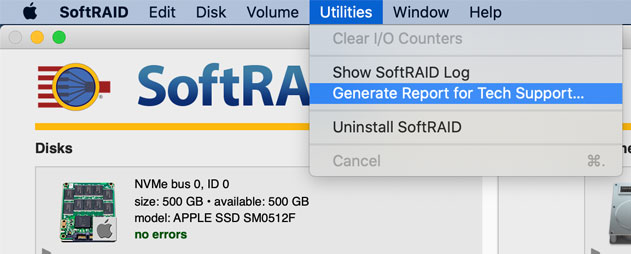FAQ - Frequently Asked Questions - Knowledge Base
Slow read or write speeds when using SoftRAID
There are several factors that can affect the read and write speed of your RAID. If you feel that your RAID is running slower than it should (e.g. less than 100 MB/s for multiple disks in a RAID), please use the following tips to narrow down the problem.
Benchmark Tool
- Speeds can vary depending on the benchmark tool and the settings that are used.
- As a standard test and when contacting tech support, we recommend using AJA System Test. This is a free app available for both macOS and Windows.
Select your RAID drive as the target disk. Set the resolution to 5K, test file size to 64 GB and codec to 16bit RGBA. Expand the graph at the bottom of the screen and then click Start.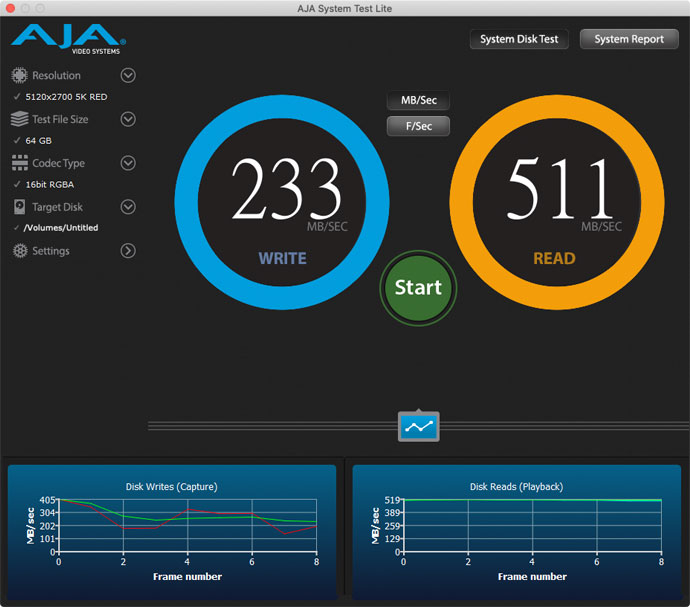
SoftRAID
- Open SoftRAID and check if there are any errors or warnings (e.g. Limited SoftRAID Driver Running) that might explain the reduced performance.
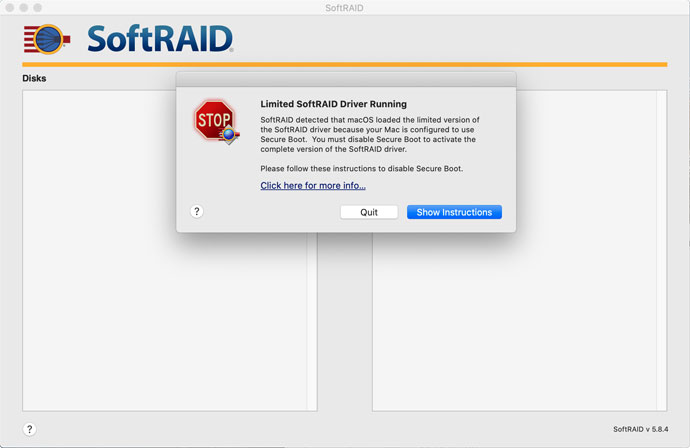
- Make sure you have installed the latest version of SoftRAID. To do so, open SoftRAID, access the SoftRAID menu and click "Check For Updates...".
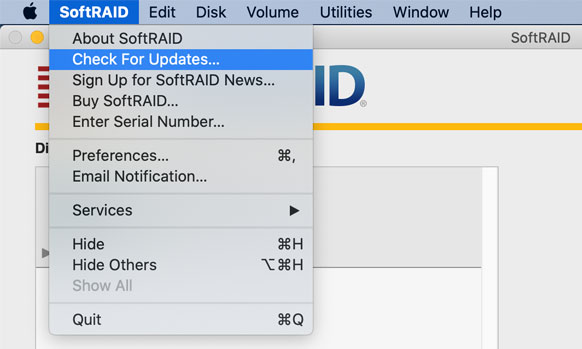
- Open SoftRAID, access the Utilities menu and click "Show SoftRAID Log". Look for errors and if possible, resolve those first.
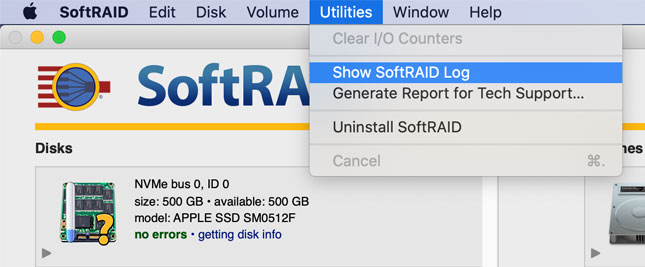
- You may use a trial version of SoftRAID or a registered version but NOT an expired trial version. An expired trial version will have reduced functionality and performance.
Hardware
- When testing the speed, please connect the external storage drive directly to your computer (no daisy chain) and temporarily disconnect any other peripherals. If you are using bus power and/or a laptop, make sure to plug in the power adapter to your device and to your laptop.
- If your RAID is almost full (e.g. over 75%), especially for spinning hard disk drives (HDDs), the speed might be slower than with empty drives. If that is the case, free up some space and then test the speed again.
- Speeds can vary depending on the drives, the enclosure and the computer. Check the specifications of your hardware for more details. Just to list a few examples:
- A single 3.5" SATA HDD usually runs anywhere between 150-250 MB/s
- A Thunderbolt 2 enclosure will max out at around 1375 MB/s
- In certain enclosures, the performance of a single disk can be limited to around 370 MB/s
- SSDs might slow down over time if TRIM is not enabled (sudo trimforce enable)
- Certain NAS HDDs using SMR technology might have reduced write performance after 10 minutes of work
- Fragmented data and less than optimal directory structure after using the RAID for a while can slow down the drive (use DiskWarrior periodically)
- If nothing else has helped so far and you have enough available storage space in another location, backup your data to another drive and then remove the RAID.
- Initialize and create a new volume on each disk.
- Test the drives independently. If you find a disk that is slower than the others or has problems (e.g. unable to complete the formatting process), swap the disks and see if the problem follows a certain disk. If yes, replace that disk or remove it from the RAID.
- If there are no issues, note the speed of a single disk for later reference, re-create the RAID and test the speed of the RAID again.
Tech Support
If none of the above helps, please open SoftRAID, go to the Utilities menu and click "Generate Report for Tech Support". Contact Tech Support and let us know about your problem, what you have done to troubleshoot it already, what setup you are using (e.g. computer, storage enclosure, drives, etc.) and include both the report from SoftRAID and a screenshot of your AJA disk test.
